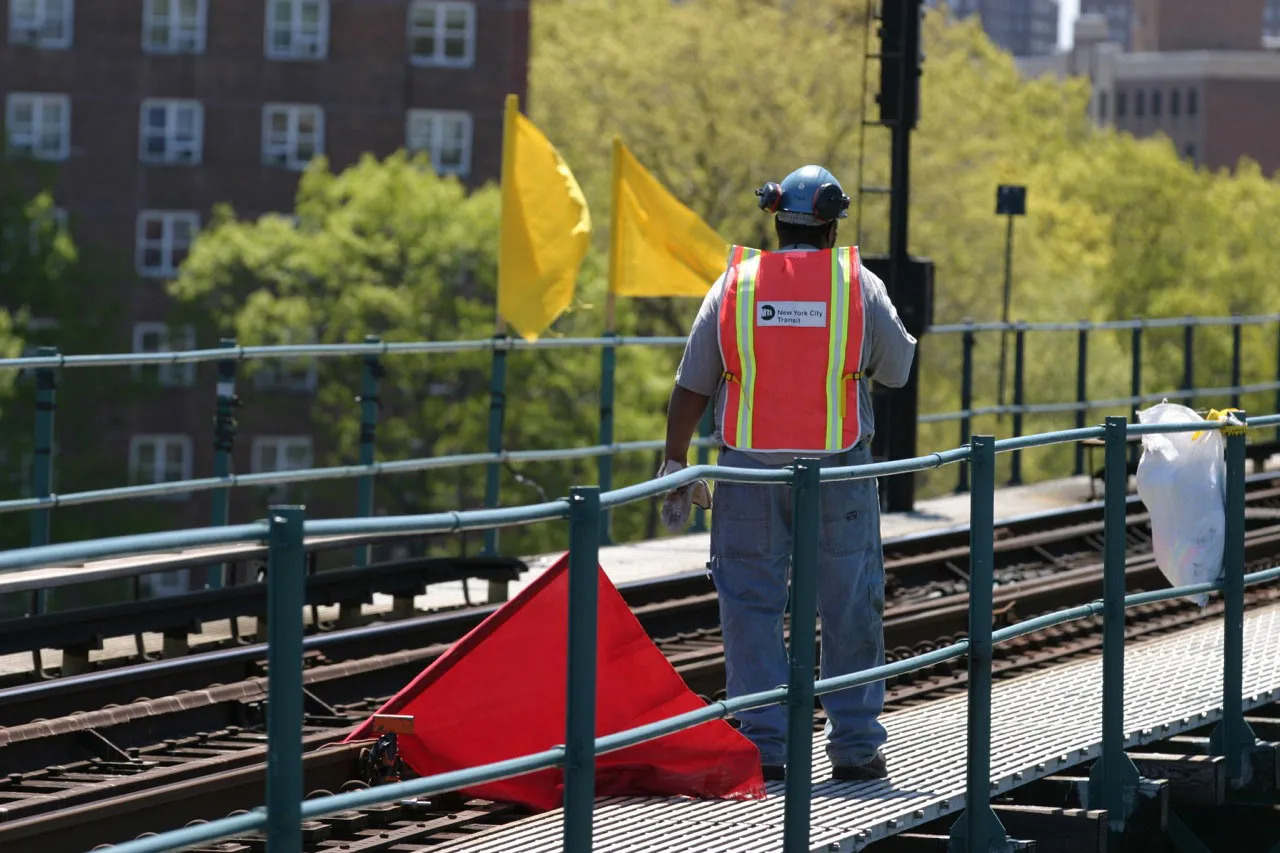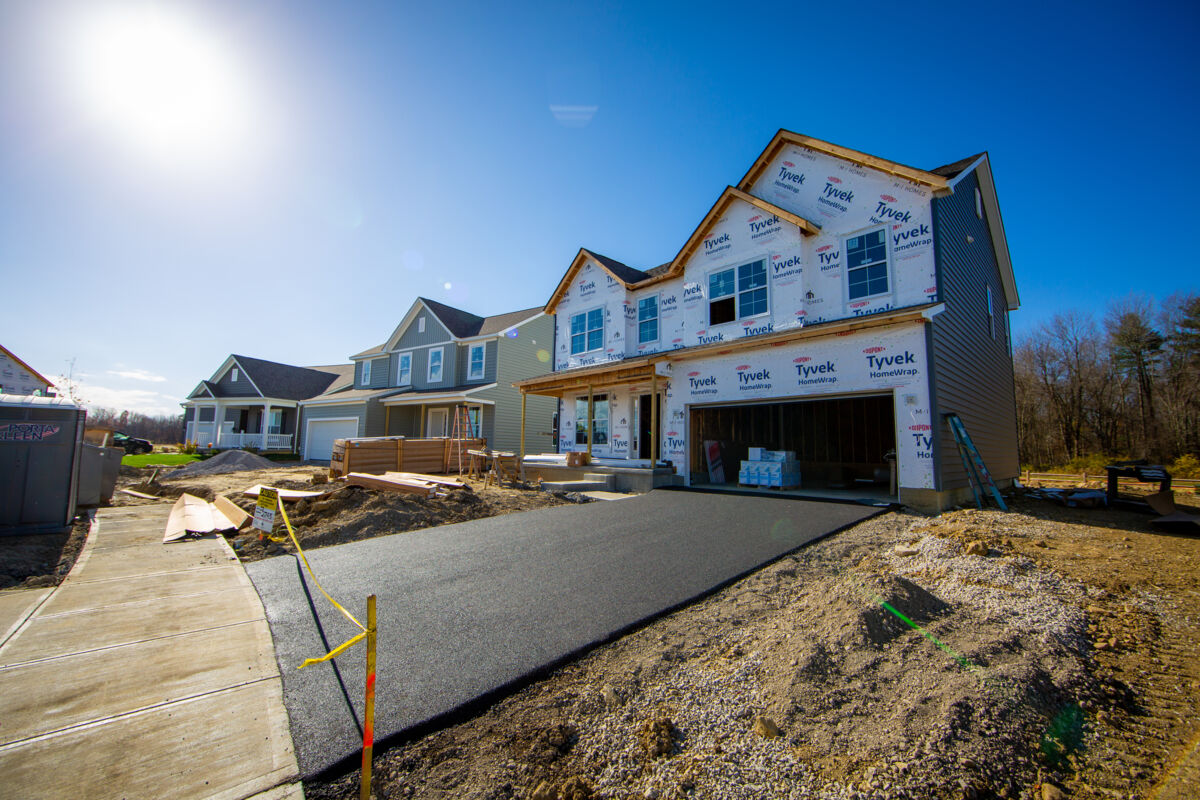Home>diy>Building & Construction>What Is A Construction Administrator


Building & Construction
What Is A Construction Administrator
Modified: October 20, 2024
Discover the role of a construction administrator in building construction projects. Learn the responsibilities, skills, and qualifications needed for this crucial position.
(Many of the links in this article redirect to a specific reviewed product. Your purchase of these products through affiliate links helps to generate commission for Storables.com, at no extra cost. Learn more)
Introduction
Construction projects can be complex and multi-faceted, involving various stakeholders, tight timelines, and a myriad of tasks to be coordinated. To ensure the smooth execution of these projects, construction administrators play a crucial role in overseeing and coordinating all aspects of the construction process. They act as the bridge between the construction team, clients, contractors, and regulatory authorities, ensuring that projects are completed efficiently, on time, and within budget.
In this article, we will explore the concept of construction administration, including its definition, roles and responsibilities, required skills, educational background, and the importance of construction administrators in the construction industry. We will also discuss the challenges faced by construction administrators and the emerging trends in this field.
Whether you’re a construction professional looking to advance your career or a project owner seeking insights into the construction process, understanding the role of construction administrators is essential. So, let’s delve into the world of construction administration and discover what it takes to be an effective construction administrator.
Key Takeaways:
- Construction administrators are essential for coordinating and managing all administrative aspects of construction projects, ensuring efficient communication, budget management, and compliance with regulations for successful project execution.
- As the construction industry evolves, construction administrators must embrace emerging trends such as green building, technology integration, and lean construction practices to overcome challenges and drive project success.
Definition of a Construction Administrator
A construction administrator, also known as a construction coordinator or construction project administrator, is a professional who oversees and manages the administrative aspects of a construction project. They serve as a central point of contact and ensure effective communication among project stakeholders, including architects, engineers, contractors, subcontractors, suppliers, and clients.
Construction administrators are responsible for the overall coordination and organization of construction projects, from the initial planning stages to project closeout. They work closely with project managers and construction teams to establish timelines, track progress, manage budgets, and ensure that all activities align with contractual obligations, building codes, and regulations.
The role of a construction administrator may vary depending on the size and complexity of the project, as well as the specific requirements set forth by the construction company or client. However, their primary focus is to facilitate the smooth flow of information, resources, and documentation throughout the construction process.
Construction administrators typically perform a wide range of tasks, including:
- Coordinating project meetings and ensuring all relevant stakeholders are informed
- Reviewing and interpreting construction drawings, specifications, and contracts
- Preparing and distributing documents such as requests for proposals (RFPs), change orders, and project status reports
- Facilitating the bidding process and evaluating contractor proposals
- Tracking project expenses and managing project budgets
- Managing project documentation, including permits, licenses, and insurance certificates
- Overseeing the procurement of materials and equipment
- Monitoring project progress and ensuring adherence to schedules
- Resolving conflicts and addressing any issues that may arise during the construction process
- Conducting site visits and inspections to ensure compliance with safety standards and quality control
- Coordinating project closeout activities, such as final inspections and obtaining occupancy permits
Overall, construction administrators play a vital role in ensuring the successful and efficient completion of construction projects, leveraging their organizational skills, attention to detail, and ability to manage multiple tasks simultaneously.
Roles and Responsibilities of Construction Administrators
Construction administrators have diverse roles and responsibilities that are crucial to the success of construction projects. Their primary objective is to ensure that all aspects of the project are effectively managed and that the project proceeds smoothly from start to finish. Here are some key roles and responsibilities of construction administrators:
1. Project Coordination and Communication:
Construction administrators serve as the main point of contact for all project stakeholders, including the construction team, clients, architects, engineers, and subcontractors. They coordinate and facilitate communication among these stakeholders to ensure that everyone is on the same page regarding project objectives, timelines, and requirements.
2. Contract Administration:
Construction administrators are responsible for managing and administering contracts related to the construction project. They review and interpret contract documents, ensure compliance with contractual obligations, and handle change orders, claims, and disputes that may arise throughout the project.
Read more: What Is Construction
3. Budget Management:
Construction administrators play a vital role in managing the project budget. They track project expenses, monitor costs, and implement cost control measures to ensure that the project stays within budget. They work closely with project managers and financial teams to forecast and allocate resources appropriately.
4. Documentation Management:
Construction projects generate a significant amount of paperwork, including permits, contracts, drawings, and reports. Construction administrators are responsible for managing and organizing these documents, ensuring that they are accurate, up-to-date, and readily accessible to project stakeholders.
5. Quality Control and Compliance:
Construction administrators are responsible for ensuring that all construction activities meet quality standards and comply with building codes and regulations. They work alongside project managers and site supervisors to conduct inspections, address non-compliance issues, and implement corrective measures to maintain quality throughout the project.
6. Risk Management:
Construction projects involve various risks, such as safety hazards, design changes, and unforeseen delays. Construction administrators help identify, assess, and mitigate these risks to minimize their impact on the project. They implement safety protocols, manage insurance requirements, and develop contingency plans to address potential challenges.
Read more: What Is Drainage In Construction
7. Team Leadership and Support:
Construction administrators provide leadership and support to the project team. They assign tasks, monitor progress, and offer guidance to ensure that project milestones are met. They collaborate with team members to solve problems, resolve conflicts, and foster a positive and productive work environment.
Overall, construction administrators play a vital role in the successful execution of construction projects. Their ability to effectively communicate, coordinate, and manage various aspects of the project contributes to its overall success and timely completion.
Skills Required for Construction Administrators
Being a construction administrator requires a diverse set of skills to effectively manage the administrative aspects of construction projects. In addition to strong organizational and communication abilities, construction administrators should possess the following key skills:
1. Construction Knowledge:
Construction administrators need a solid understanding of construction processes, terminology, and best practices. They should be familiar with construction methods, materials, and building codes to effectively communicate with project stakeholders and make informed decisions.
2. Attention to Detail:
Given the intricacies of construction projects, attention to detail is crucial for construction administrators. They must carefully review contracts, specifications, and documents to ensure accuracy, identify potential issues, and minimize errors that could lead to delays or budget overruns.
Read more: What Is An AHA In Construction
3. Project Management:
Construction administrators should possess strong project management skills to oversee all aspects of a construction project. They need to be able to develop detailed project schedules, allocate resources, manage budgets, and track progress to ensure projects are completed on time and within budget.
4. Communication and Collaboration:
Construction administrators serve as a central point of contact for various stakeholders, so effective communication and collaboration skills are essential. They must be able to clearly convey project objectives, provide timely updates, and actively listen to the concerns and needs of stakeholders.
5. Problem-Solving:
Construction projects can present unexpected challenges and obstacles. Construction administrators need strong problem-solving skills to identify issues, analyze solutions, and make informed decisions to keep the project on track. They should be able to think critically and find innovative solutions to overcome roadblocks.
6. Analytical Skills:
Construction administrators should possess strong analytical skills to assess project data, evaluate risks, and make data-driven decisions. They need to analyze budget reports, project schedules, and other data to identify trends, make forecasts, and implement strategies to optimize project outcomes.
Read more: What Is A Wattle In Construction
7. Time Management:
Given the fast-paced nature of construction projects, construction administrators must have excellent time management skills. They need to prioritize tasks, meet deadlines, and ensure that all project activities are well-coordinated to avoid delays and maximize efficiency.
8. Leadership:
Construction administrators often play a leadership role in coordinating the project team and resolving conflicts. They should have the ability to motivate and guide team members, provide clear direction, and foster a collaborative and productive work environment.
While these skills are essential for construction administrators, it is important to note that continuous learning and adaptability are also key. The construction industry is constantly evolving, and construction administrators must stay updated with new technologies, codes, and regulations to effectively manage construction projects.
Education and Training for Construction Administrators
Education and training play a vital role in preparing individuals for a career as a construction administrator. While specific requirements may vary depending on the employer and the complexity of the projects, here are some common educational and training pathways for construction administrators:
1. Bachelor’s Degree:
Many construction administrators hold a bachelor’s degree in construction management, construction engineering, civil engineering, architecture, or a related field. These degree programs provide a comprehensive understanding of construction processes, project management principles, and relevant technical knowledge.
Read more: What Is An MEP In Construction
2. Certification Programs:
There are various certification programs available for construction administrators that can enhance their skill set and demonstrate their expertise. Organizations such as the Construction Managers Association of America (CMAA) and the American Institute of Constructors (AIC) offer certifications such as Certified Construction Manager (CCM) and Associate Constructor (AC). These certifications validate the individual’s knowledge and experience, giving them a competitive edge in the job market.
3. Internships and On-the-Job Training:
Hands-on experience is invaluable for construction administrators. Many individuals start their careers as interns or entry-level workers on construction sites, gaining practical knowledge and exposure to the industry. This on-the-job training provides insights into the construction processes, project coordination, and the day-to-day challenges faced by construction administrators.
4. Continuing Education:
To stay current with industry trends and advancements, construction administrators should engage in continuing education. This can include attending workshops, seminars, and conferences related to construction management, project coordination, and relevant regulations. Continuing education helps construction administrators enhance their knowledge, expand their professional network, and adapt to emerging technologies and best practices.
5. Professional Development:
Joining professional organizations and participating in professional development activities can significantly benefit construction administrators. These organizations offer networking opportunities, industry resources, and educational events that can help individuals stay connected with the latest trends, expand their knowledge, and develop essential skills for career advancement.
Read more: What Is A Footer Construction
6. Software and Technology Training:
Proficiency in construction management software and technology tools is becoming increasingly important for construction administrators. Familiarity with software such as construction project management software, Building Information Modeling (BIM) tools, and scheduling software can streamline project coordination and improve communication among stakeholders. Individuals may undergo specific training programs to gain proficiency in these tools.
It is important for aspiring construction administrators to evaluate their career goals and choose educational and training pathways that align with their aspirations. Continuous learning and professional development are essential in this field as construction practices, regulations, and technology evolve over time.
Importance of Construction Administrators in the Construction Industry
Construction administrators play a crucial role in the successful execution of construction projects. Their involvement ensures that projects are completed efficiently, with minimal delays, and within budget. Here are several key reasons why construction administrators are vital to the construction industry:
1. Project Coordination and Communication:
Construction administrators serve as the central point of contact for all project stakeholders. They facilitate effective communication and coordination among architects, engineers, contractors, subcontractors, suppliers, and clients. Their ability to ensure that information flows smoothly and that all parties are on the same page is essential for the timely completion of projects.
2. Contract Administration and Legal Compliance:
Construction projects involve various contracts and legal requirements. Construction administrators are responsible for managing and administering contracts, ensuring compliance with contractual obligations, building codes, and regulations. Their attention to detail in reviewing and interpreting contracts helps mitigate risks and avoid costly disputes.
Read more: What Is Sitework In Construction
3. Budget and Cost Management:
Construction administrators play a vital role in managing project budgets and controlling costs. They monitor project expenses, track progress against budget estimates, and identify potential cost saving opportunities. By implementing effective cost control measures, they help ensure that projects stay within budget and avoid financial setbacks.
4. Time Management and Scheduling:
Timely completion of projects is a critical success factor in the construction industry. Construction administrators work closely with project managers to develop project schedules, allocate resources effectively, and monitor progress. Their expertise in time management ensures that project milestones are met, and any potential delays are identified and addressed promptly.
5. Quality Control and Safety:
Construction administrators play a significant role in ensuring quality standards and safety protocols are upheld. They collaborate with project teams to implement quality control measures, conduct inspections, and address any non-compliance issues. By prioritizing safety and quality, construction administrators help mitigate risks and ensure that projects meet regulatory requirements.
6. Documentation and Record Keeping:
Construction projects generate a vast amount of documentation, including permits, contracts, drawings, and reports. Construction administrators are responsible for managing and organizing these documents, ensuring they are accurate, up-to-date, and readily accessible. This documentation is essential for legal compliance, project tracking, and future reference.
Read more: What Is A Header Construction
7. Problem-Solving and Conflict Resolution:
Construction projects often encounter unforeseen challenges and conflicts. Construction administrators are adept at problem-solving and have the ability to resolve conflicts among stakeholders. Their ability to think critically, address issues, and find collaborative solutions helps keep projects on track and maintain positive working relationships.
In summary, construction administrators play a vital role in the construction industry by facilitating effective communication, ensuring legal compliance, managing budgets and schedules, maintaining quality standards, and resolving issues. Their expertise and skills contribute to the successful execution of construction projects and ultimately lead to client satisfaction and project success.
Challenges Faced by Construction Administrators
Construction administrators face various challenges throughout the construction process. These challenges can arise from factors such as project complexity, strict timelines, budget constraints, and the dynamic nature of the construction industry. Here are some common challenges faced by construction administrators:
1. Project Delays:
Delays in construction projects can occur due to weather conditions, unexpected site conditions, changes in scope, or issues with permits and approvals. Construction administrators are responsible for managing and mitigating these delays to keep the project on schedule. They must coordinate with stakeholders, adapt schedules, and find solutions to minimize the impact of delays on the project timeline.
2. Budget Constraints:
Managing the project within budget is a significant challenge for construction administrators. Cost overruns can arise from unforeseen circumstances, changes in scope, or inefficient cost management. Construction administrators must closely monitor project expenses, analyze cost trends, and implement effective cost control measures to ensure that projects remain within budgetary constraints.
Read more: What Is Foundation In Construction
3. Regulatory Compliance:
Construction projects must comply with various building codes, regulations, and permits. Construction administrators are responsible for ensuring that the project meets these regulatory requirements. The complexity of compliance can vary depending on the jurisdiction and the type of project. Construction administrators need to stay updated with current regulations and navigate the permit process effectively to ensure compliance throughout the project.
4. Communication and Coordination:
Effective communication and coordination are critical for the success of construction projects. Construction administrators must effectively communicate project objectives, timelines, and updates to all relevant stakeholders. Coordinating with multiple parties, including architects, engineers, contractors, and clients, can be challenging, and miscommunication can lead to project delays or costly mistakes. Construction administrators need strong interpersonal and communication skills to address these challenges.
5. Risk Management:
Risk management is an ongoing challenge in construction projects. Construction administrators must identify potential risks, such as safety hazards, design changes, or material delays, and develop strategies to mitigate them. This includes implementing safety measures, establishing contingency plans, and ensuring proper insurance coverage. Effective risk management requires both proactive planning and the ability to adapt to unforeseen circumstances.
6. Labour Shortages:
The construction industry often faces labour shortages, which can impact project timelines and costs. Construction administrators must navigate the challenges of securing skilled labor, managing subcontractors, and handling labor-related issues. They may need to develop recruitment strategies, establish strong relationships with subcontractors, and implement efficient labor management practices to overcome these challenges.
Read more: What Is A Pilaster In Construction
7. Technology Integration:
The construction industry is evolving rapidly, with advancements in technology driving efficiency and productivity. Construction administrators must navigate the complexities of integrating new technologies, such as building information modeling (BIM), project management software, and mobile applications. Implementing new technologies while ensuring minimal disruption to ongoing projects can be a significant challenge.
In summary, construction administrators face a range of challenges, including project delays, budget constraints, regulatory compliance, communication and coordination issues, risk management, labor shortages, and technology integration. By identifying and addressing these challenges proactively, construction administrators can help ensure the successful execution of construction projects.
Emerging Trends in Construction Administration
The construction industry is continually evolving, and with it, the field of construction administration is also experiencing notable advancements and trends. Here are some of the emerging trends in construction administration:
1. Green Building and Sustainability:
There is a growing emphasis on sustainable construction practices and environmentally friendly buildings. Construction administrators are now incorporating green building principles into their projects, considering factors such as energy efficiency, water conservation, and use of recycled materials. They work closely with architects, engineers, and contractors to ensure that projects meet sustainability goals and achieve green building certifications.
2. Technology Integration:
Technology plays a significant role in streamlining construction administration processes. Construction administrators are leveraging various tools and software to enhance project management, document control, and communication. Building Information Modeling (BIM), project management software, and mobile applications are being used to improve collaboration, increase efficiency, and reduce errors in construction projects.
Read more: What Is Toenailing In Construction
3. Virtual Design and Construction (VDC):
VDC involves the use of 3D modeling, simulation, and virtual reality technologies to visualize and analyze construction projects before they are built. Construction administrators are utilizing VDC techniques to create accurate digital representations of projects, enhancing design coordination, identifying clashes, and optimizing construction workflows. This trend helps reduce rework, improve cost control, and enhance project outcomes.
4. Integrated Project Delivery (IPD):
IPD is an innovative approach that involves early collaboration and shared responsibilities among project stakeholders, including construction administrators, architects, engineers, and contractors. This collaborative approach encourages open communication, mutual goals, and risk-sharing among project team members. Construction administrators contribute to IPD by facilitating effective communication, promoting cooperation, and coordinating the integrated project team.
5. Lean Construction Practices:
Lean construction focuses on eliminating waste and maximizing efficiency throughout the construction process. This approach emphasizes continuous improvement, effective communication, and collaboration among project participants. Construction administrators are adopting lean construction practices to identify and eliminate non-value-adding activities, reduce project delays, and enhance overall project performance.
6. Data Analytics and Predictive Analytics:
Construction administrators are increasingly leveraging data analytics and predictive analytics to drive informed decision-making. They analyze project data to identify patterns, trends, and forecast potential risks or opportunities. By utilizing data-driven insights, construction administrators can optimize project planning, resource allocation, and risk management strategies.
Read more: What Is OSHA In Construction
7. Offsite Construction and Modularization:
Offsite construction and modularization involve manufacturing components or entire building modules offsite and then assembling them at the construction site. Construction administrators play a vital role in coordinating offsite construction activities, coordinating logistics, and ensuring seamless integration of modular components into the overall project. This trend helps reduce construction time and costs while improving quality control.
These emerging trends indicate the direction in which the field of construction administration is heading. By staying updated with these trends and embracing innovation, construction administrators can maximize efficiency, enhance project outcomes, and stay competitive in the evolving construction industry.
Conclusion
Construction administration is a critical function within the construction industry, responsible for coordinating and managing all administrative aspects of construction projects. Construction administrators play a pivotal role in ensuring the successful execution of projects by facilitating communication, coordinating activities, and implementing effective project management strategies.
In this article, we explored the definition of a construction administrator and delved into their roles and responsibilities. We discussed the skills required for construction administrators, including construction knowledge, attention to detail, project management abilities, and strong communication and problem-solving skills.
We also explored the educational and training pathways for construction administrators, highlighting the importance of a bachelor’s degree, certification programs, internships, and ongoing professional development. A strong educational foundation combined with practical experience is essential for success as a construction administrator.
Furthermore, we discussed the importance of construction administrators in the construction industry. From project coordination and contract administration to budget management and quality control, construction administrators ensure that projects are completed efficiently, within budget, and to the highest standards of quality and safety.
However, the role of a construction administrator is not without its challenges. From project delays and budget constraints to regulatory compliance and communication issues, construction administrators must navigate various obstacles. By staying proactive, embracing emerging trends, such as green building, technology integration, and lean construction practices, construction administrators can overcome these challenges and drive project success.
In conclusion, construction administrators are vital to the construction industry. Their expertise in project management, communication, and coordination ensures that construction projects are executed seamlessly. As the industry continues to evolve, embracing emerging trends and leveraging technological advancements will be crucial for construction administrators to thrive and meet the ever-changing demands of the construction landscape.
Frequently Asked Questions about What Is A Construction Administrator
Was this page helpful?
At Storables.com, we guarantee accurate and reliable information. Our content, validated by Expert Board Contributors, is crafted following stringent Editorial Policies. We're committed to providing you with well-researched, expert-backed insights for all your informational needs.




0 thoughts on “What Is A Construction Administrator”